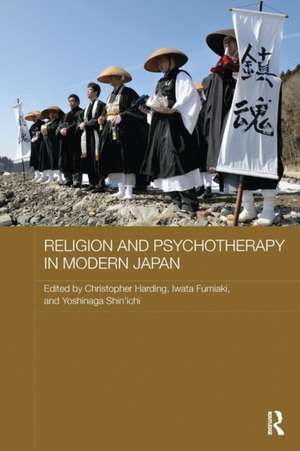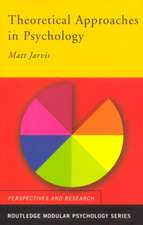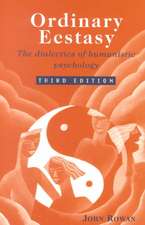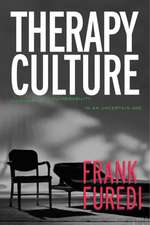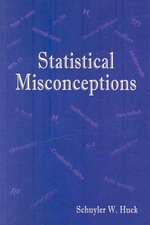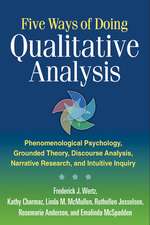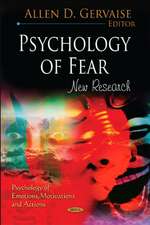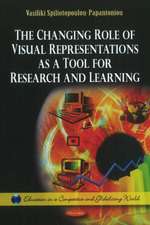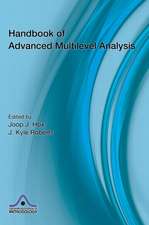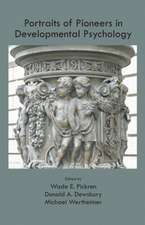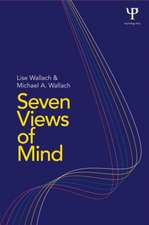Religion and Psychotherapy in Modern Japan: Routledge Contemporary Japan Series
Editat de Christopher Harding, Iwata Fumiaki, Yoshinaga Shin’ichien Limba Engleză Paperback – 20 dec 2016
This book provides a historically contextualized introduction to the dialogue between religion and psychotherapy in modern Japan. In doing so, it draws out connections between developments in medicine, government policy, Japanese religion and spirituality, social and cultural criticism, regional dynamics, and gender relations. The chapters all focus on the meeting and intermingling of religious with psychotherapeutic ideas and draw on a wide range of case studies including: how temple and shrine ‘cures’ of early modern Japan fared in the light of German neuropsychiatry; how Japanese Buddhist theories of mind, body, and self-cultivation negotiated with the findings of western medicine; how Buddhists, Christians, and other organizations and groups drew and redrew the lines between religious praxis and psychological healing; how major European therapies such as Freud’s fed into self-consciously Japanese analyses of and treatments for the ills of the age; and how distress, suffering, and individuality came to be reinterpreted across the twentieth and early twenty-first centuries, from the southern islands of Okinawa to the devastated northern neighbourhoods of the Tohoku region after the earthquake, tsunami, and nuclear disasters of March 2011.
Religion and Psychotherapy in Modern Japan will be welcomed by students and scholars working across a broad range of subjects, including Japanese culture and society, religious studies, psychology and psychotherapy, mental health, and international history.
| Toate formatele și edițiile | Preț | Express |
|---|---|---|
| Paperback (1) | 416.22 lei 6-8 săpt. | |
| Taylor & Francis – 20 dec 2016 | 416.22 lei 6-8 săpt. | |
| Hardback (1) | 1168.40 lei 6-8 săpt. | |
| Taylor & Francis – 16 sep 2014 | 1168.40 lei 6-8 săpt. |
Din seria Routledge Contemporary Japan Series
-
 Preț: 311.18 lei
Preț: 311.18 lei - 8%
 Preț: 383.06 lei
Preț: 383.06 lei -
 Preț: 325.09 lei
Preț: 325.09 lei - 9%
 Preț: 934.94 lei
Preț: 934.94 lei -
 Preț: 348.48 lei
Preț: 348.48 lei -
 Preț: 340.60 lei
Preț: 340.60 lei -
 Preț: 327.41 lei
Preț: 327.41 lei -
 Preț: 309.55 lei
Preț: 309.55 lei -
 Preț: 309.93 lei
Preț: 309.93 lei -
 Preț: 202.94 lei
Preț: 202.94 lei -
 Preț: 310.99 lei
Preț: 310.99 lei -
 Preț: 663.94 lei
Preț: 663.94 lei - 14%
 Preț: 1002.06 lei
Preț: 1002.06 lei - 18%
 Preț: 1056.00 lei
Preț: 1056.00 lei - 18%
 Preț: 1061.93 lei
Preț: 1061.93 lei -
 Preț: 338.25 lei
Preț: 338.25 lei -
 Preț: 483.08 lei
Preț: 483.08 lei -
 Preț: 484.04 lei
Preț: 484.04 lei - 28%
 Preț: 820.32 lei
Preț: 820.32 lei - 22%
 Preț: 327.08 lei
Preț: 327.08 lei - 18%
 Preț: 1164.24 lei
Preț: 1164.24 lei - 18%
 Preț: 951.96 lei
Preț: 951.96 lei -
 Preț: 290.77 lei
Preț: 290.77 lei - 25%
 Preț: 823.99 lei
Preț: 823.99 lei - 18%
 Preț: 703.79 lei
Preț: 703.79 lei - 18%
 Preț: 1051.60 lei
Preț: 1051.60 lei - 18%
 Preț: 1059.84 lei
Preț: 1059.84 lei -
 Preț: 390.96 lei
Preț: 390.96 lei - 18%
 Preț: 1110.92 lei
Preț: 1110.92 lei - 18%
 Preț: 1220.42 lei
Preț: 1220.42 lei -
 Preț: 280.57 lei
Preț: 280.57 lei - 28%
 Preț: 791.43 lei
Preț: 791.43 lei -
 Preț: 447.51 lei
Preț: 447.51 lei -
 Preț: 487.44 lei
Preț: 487.44 lei -
 Preț: 328.95 lei
Preț: 328.95 lei - 18%
 Preț: 1113.95 lei
Preț: 1113.95 lei - 18%
 Preț: 1058.79 lei
Preț: 1058.79 lei - 16%
 Preț: 129.96 lei
Preț: 129.96 lei - 18%
 Preț: 1007.48 lei
Preț: 1007.48 lei - 28%
 Preț: 818.93 lei
Preț: 818.93 lei - 18%
 Preț: 1059.84 lei
Preț: 1059.84 lei -
 Preț: 386.30 lei
Preț: 386.30 lei - 18%
 Preț: 1056.95 lei
Preț: 1056.95 lei
Preț: 416.22 lei
Nou
Puncte Express: 624
Preț estimativ în valută:
79.64€ • 83.32$ • 66.16£
79.64€ • 83.32$ • 66.16£
Carte tipărită la comandă
Livrare economică 03-17 aprilie
Preluare comenzi: 021 569.72.76
Specificații
ISBN-13: 9781138628991
ISBN-10: 1138628999
Pagini: 320
Ilustrații: 12
Dimensiuni: 156 x 234 x 20 mm
Greutate: 0.45 kg
Ediția:1
Editura: Taylor & Francis
Colecția Routledge
Seria Routledge Contemporary Japan Series
Locul publicării:Oxford, United Kingdom
ISBN-10: 1138628999
Pagini: 320
Ilustrații: 12
Dimensiuni: 156 x 234 x 20 mm
Greutate: 0.45 kg
Ediția:1
Editura: Taylor & Francis
Colecția Routledge
Seria Routledge Contemporary Japan Series
Locul publicării:Oxford, United Kingdom
Public țintă
Postgraduate and UndergraduateCuprins
Introduction 1. Religion and Psychotherapy in Modern Japan: A Four-Phase View 2. Psychiatry and Religion in Modern Japan: Traditional Temple and Shrine Therapies 3. The Birth of Japanese Mind Cure Methods 4. The Mind and Healing in Morita Therapy 5. The Dawning of Japanese Psychoanalysis: Kosawa Heisaku’s Therapy and Faith 6. Doi Takeo and the Development of the ‘Amae’ Theory 7. From Salvation to Healing: Yoshimoto Naikan Therapy and its Religious Origins 8. Naikan and Mourning: A Catholic Attempt at Naikan Meditation 9. Hayao Kawai’s Transnational Identity and Japanese Spirit 10. The Contemporary View of Reincarnation in Japan: Narratives of the Reincarnating Self 11. A Society Accepting of Spirit Possession: Mental Health and Shamanism in Okinawa 12. Chaplaincy Work in Disaster Areas 13. Conclusion
Notă biografică
Christopher Harding is Lecturer in Asian History in the School of History, Classics and Archaeology, University of Edinburgh, UK
Iwata Fumiaki is Professor in the Department of Social Science Education, Osaka Kyoiku University, Japan
Yoshinaga Shin’ichi is Associate Professor at the Maizuru National College of Technology, Japan
Iwata Fumiaki is Professor in the Department of Social Science Education, Osaka Kyoiku University, Japan
Yoshinaga Shin’ichi is Associate Professor at the Maizuru National College of Technology, Japan
Recenzii
"This is an outstanding book…the first high-quality academic work on religion and the psy disciplines in modern Japan. It covers the topics of modern religion and psychotherapy in Japan and connects them with the recent major crises of Aum Shinrikyo and the earthquake and tsunami of 3.11."
Akihito Suzuki, Professor of History at Keio University, Japan
"Chris Harding and his fellow editors have brought together a significant set of essays examining the relationship between the 'psy disciplines' of psychiatry, psychology, and psychotherapy, and religion in Japan. Harding's overview takes us beyond the problematic definitional issues relating to religion to show how the 'psy disciplines' have helped shape the ways in which religion is manifest in modern Japan. The essays that follow introduce a wealth of Japanese scholarship in the field that will be of value to all who are interested in religion, psychotherapy and Japanese culture in general."
Ian Reader, Professor of Religious Studies at Lancaster University, UK
"The already weighty tilt of the literature toward textual-philosophical orientations can profit from the contextualization and new voices provided by this excellent volume."
Adam Valerio, Temple University, H-Buddhism (August, 2015)
"Religion and Psychotherapy in Japan is an important and welcome addition to the growing body of literature on religion and the psy disciplines outside of the Euro-American science-versus-religion cul-de-sac, and would be of interest to scholars and students working in the sociology of religion, psychological anthropology, Japanese intellectual history, modern Japanese history, and Japanese philosophy, in addition to Japanese religion and the psy disciplines."
Isaac Gagné, Waseda University
Akihito Suzuki, Professor of History at Keio University, Japan
"Chris Harding and his fellow editors have brought together a significant set of essays examining the relationship between the 'psy disciplines' of psychiatry, psychology, and psychotherapy, and religion in Japan. Harding's overview takes us beyond the problematic definitional issues relating to religion to show how the 'psy disciplines' have helped shape the ways in which religion is manifest in modern Japan. The essays that follow introduce a wealth of Japanese scholarship in the field that will be of value to all who are interested in religion, psychotherapy and Japanese culture in general."
Ian Reader, Professor of Religious Studies at Lancaster University, UK
"The already weighty tilt of the literature toward textual-philosophical orientations can profit from the contextualization and new voices provided by this excellent volume."
Adam Valerio, Temple University, H-Buddhism (August, 2015)
"Religion and Psychotherapy in Japan is an important and welcome addition to the growing body of literature on religion and the psy disciplines outside of the Euro-American science-versus-religion cul-de-sac, and would be of interest to scholars and students working in the sociology of religion, psychological anthropology, Japanese intellectual history, modern Japanese history, and Japanese philosophy, in addition to Japanese religion and the psy disciplines."
Isaac Gagné, Waseda University
Descriere
This book provides a historically contextualized introduction to the dialogue between religion and psychotherapy in modern Japan. In doing so, it draws out connections between developments in medicine, government policy, Japanese religion and spirituality, social and cultural criticism, regional dynamics and gender relations. Religion and Psychotherapy in Modern Japan will be welcomed by students and scholars working across a broad range of subjects, including Japanese culture and society, religious studies, psychology and psychotherapy, mental health and international history.
